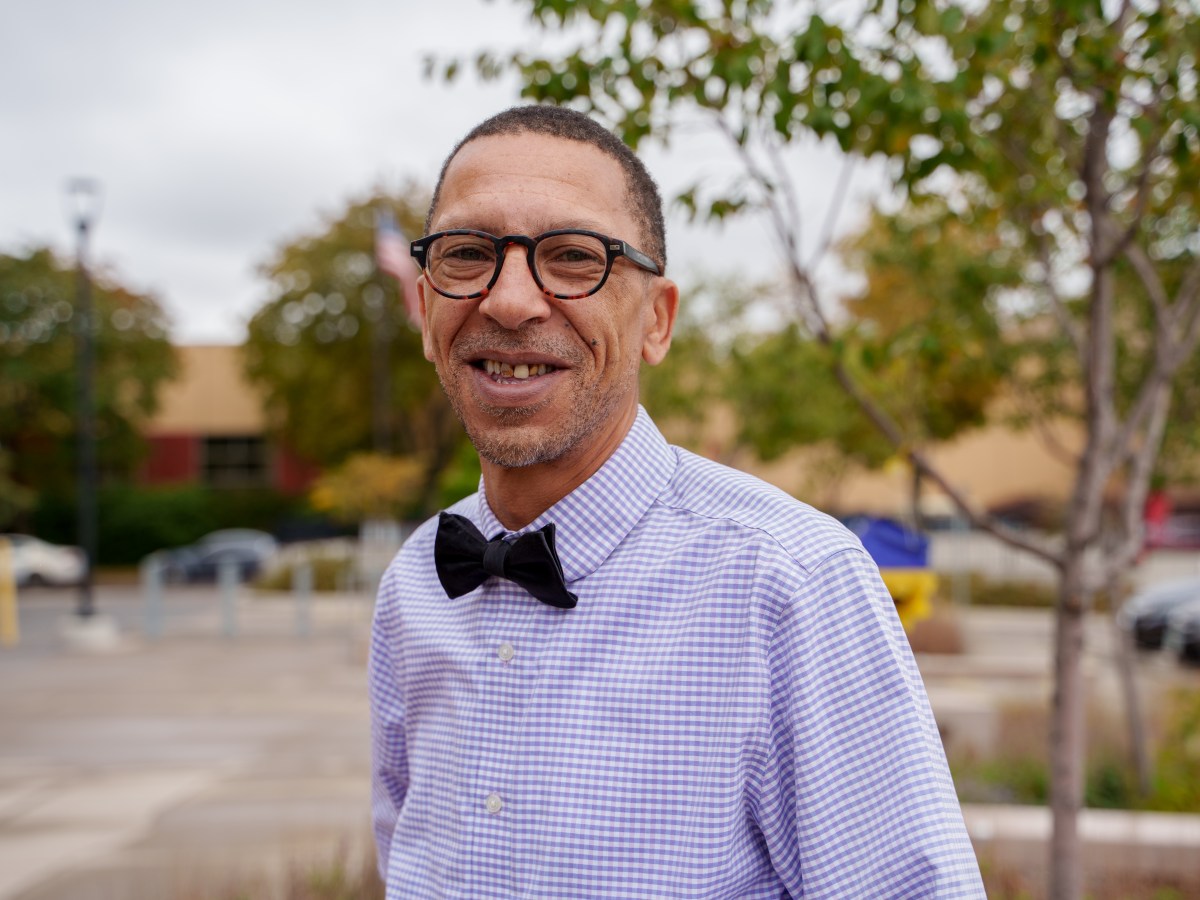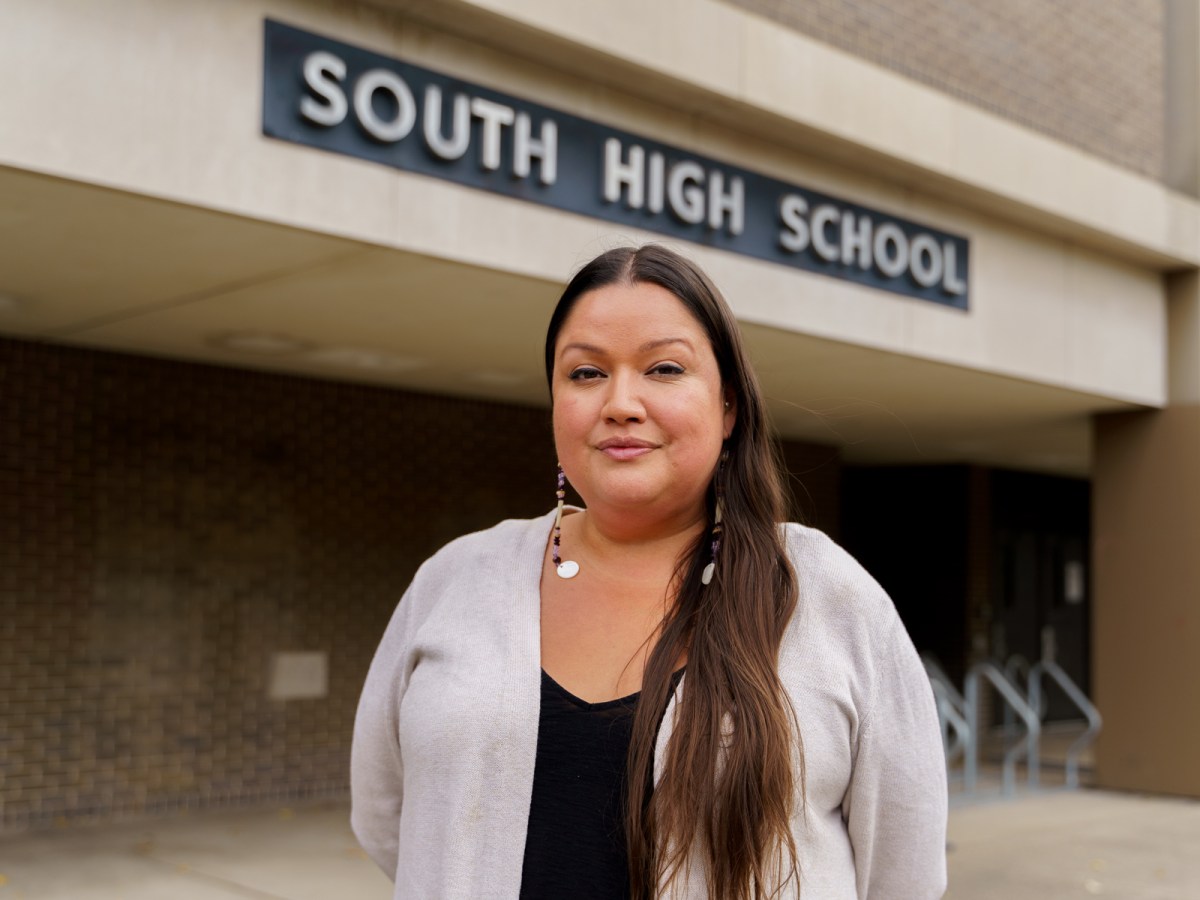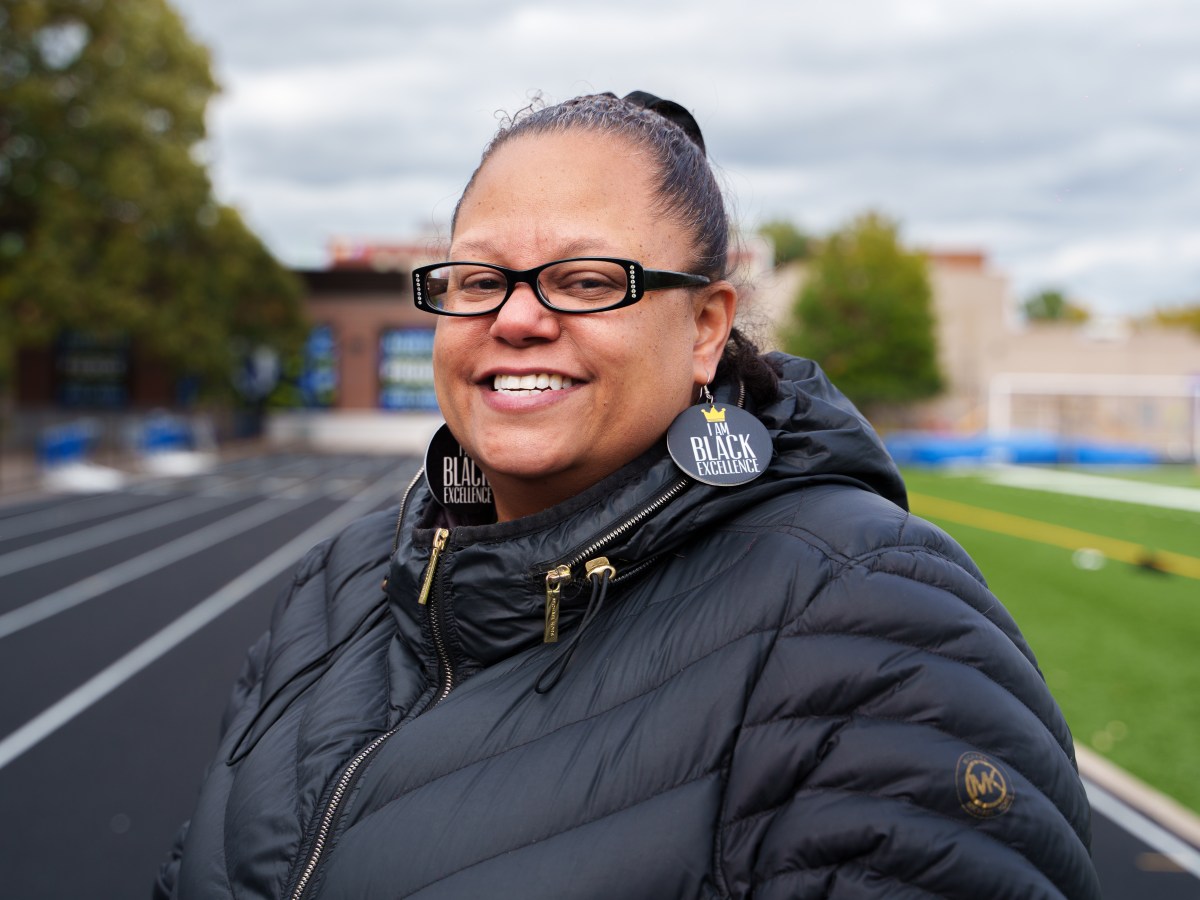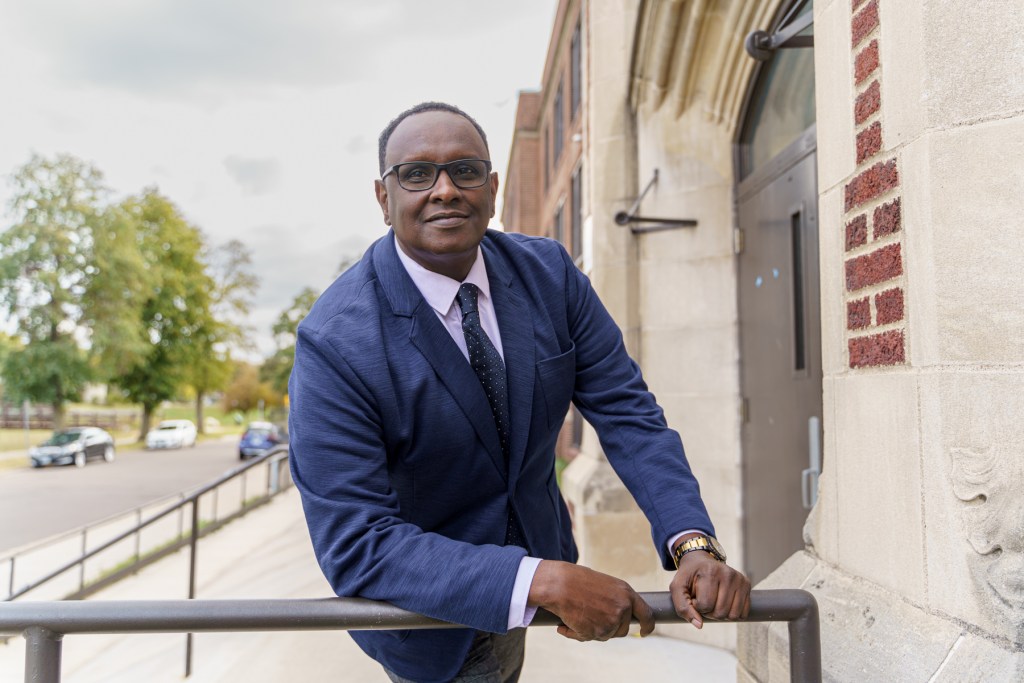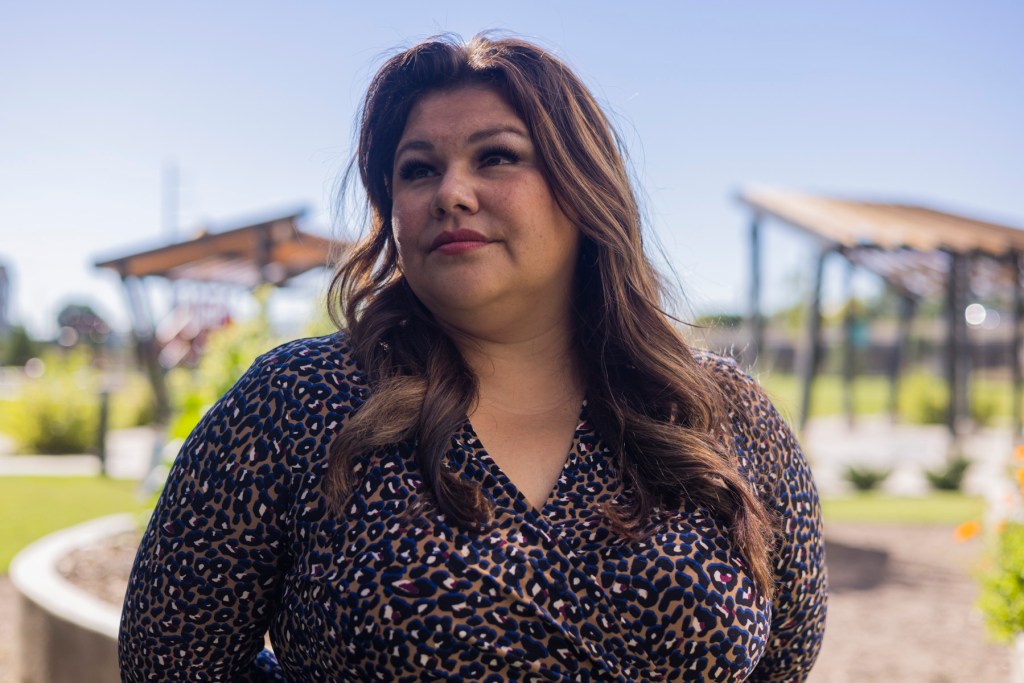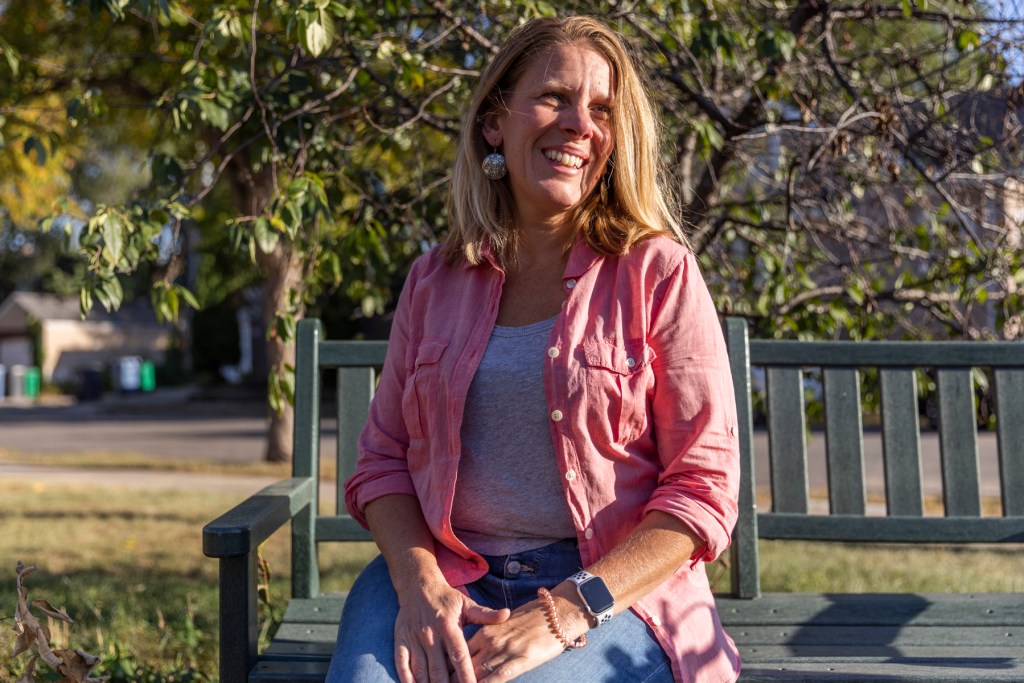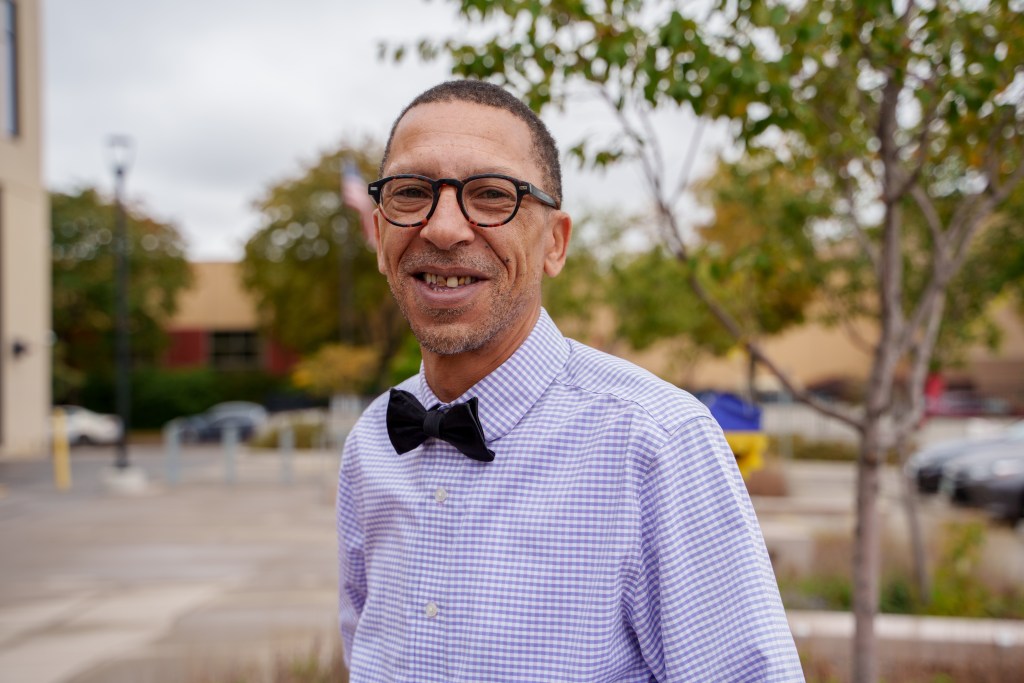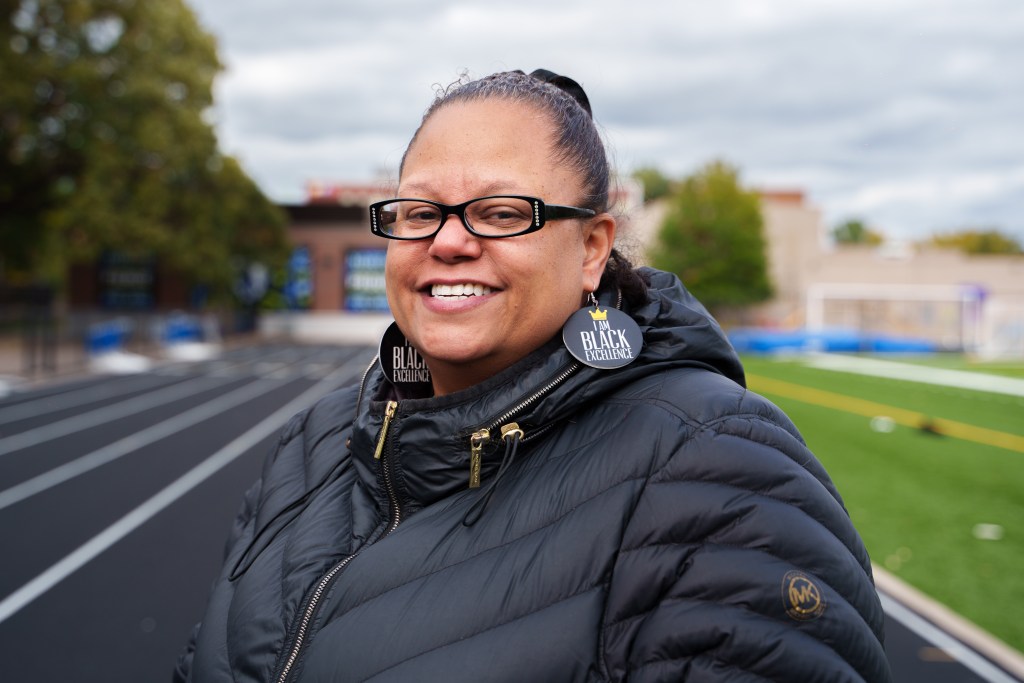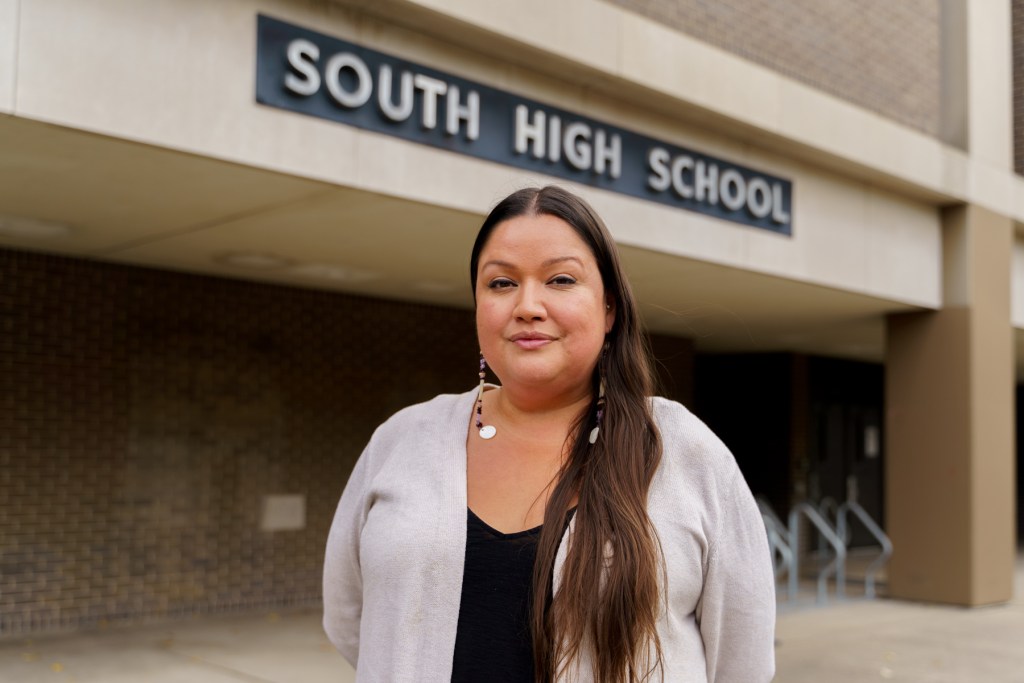Sonya Emerick, 40, is running for an at-large seat on the Minneapolis school board. Four candidates are running for this position: Emerick, Collin Beachy, KerryJo Felder, and Lisa Skjefte. All Minneapolis voters will have the chance to vote for two of these four candidates.
Name: Sonya Emerick
Age: 40
Day job: Parent, community organizer, advocate
Kids: A 7-year-old enrolled at Marcy School for the Arts and an 18-year-old who graduated from Gaia Democratic School
Neighborhood: Loring Park
Sonya Emerick’s interest in the school board stems from their experience as a parent. Their 7-year-old son is enrolled in Marcy School for the Arts. Because of complex disabilities, he receives his school services at home. However, Emerick explained, the district has not consistently provided their son with the services he needs.
“He didn’t get a whole year of core services,” Emerick said. They considered fundraising for a lawyer to sue the school district, but concluded that it would be a better use of time and resources to run for school board.
“If I’m going to spend the next three to five-plus years fighting for education access, and I’m going to raise money to try to do it, why in the world would I do something where that begins and ends with my one child?” Emerick asked.
Here’s how Emerick would approach the job on the Minneapolis school board.
In one sentence, why should people in Minneapolis vote for you?
Because I am completely committed to equitable access to education for all of our students in Minneapolis.
What do you love about Minneapolis Public Schools? Can you give your answer in two to three bullet points?
- I love the diversity that’s represented in our school district.
- I love our educators. We have really passionate, committed and creative educators in Minneapolis Public Schools.
- I love that we are not giving up. I love our fighting spirit, because it’s hard times right now. I love that we keep coming back to the table and saying, what can we do? How can we make it work?
After a tumultuous term, Superintendent Ed Graff left the district at the end of June. Selecting a new superintendent will be one of the next school board’s most important duties. Briefly, what do you think are the three most important criteria for Minneapolis’ next superintendent?
The most important thing that I will be looking for is someone with the will and the expertise to dismantle racism and related forms of systemic oppression in our district. I think racism is the biggest threat that we are facing as a district right now. I would like someone who understands the vision for the strategic plan that MPS leadership, with parent and family input, have created. It needs to be implemented with integrity, and we need quality leadership.
We need someone who will be able to do the repair work necessary to get our relationships right, between educators, between families, between people who are disenfranchised, between families who have left the district, leadership. We all need to be able to work together collaboratively and effectively, and we need someone who has the ability to lead us in that.
In March, teachers and education support professionals held a 14-day strike, which made many staff frustrations public and kept kids home for three weeks. What are the two or three most important lessons you learned from the educator strike?
We need to be organizing across the state collaboratively with other educator unions and other school districts to be putting pressure on the Minnesota legislature to get the funding that we need to pay our teachers what they deserve, and to create the working conditions that all of our students, families and educators deserve to have.
The scarcity that we are facing as a city and as a district right now creates this idea that there are competing needs. It’s really important to me to reframe that idea of competition as unity, and as a need to really figure out how to get everyone’s needs met. We shouldn’t be in a situation where the demands that the MFT (Minneapolis Federation of Teachers and Education Support Professionals) were making, which were all reasonable demands that I agree with, should be pitted against kids from low-income families and families of color needing to be in school.
How would you apply those lessons as a school board member?
I hope that if I’m elected, I am someone who MFT will want to partner with. I am a union member, and collective bargaining is a family value in my household. So I hope that I can be a voice for the teachers in Minneapolis. And, I don’t think there’s a way to get everybody’s needs met without getting funding from the legislature to remedy some of this division and scarcity that we’re feeling.
I have been testifying to the legislature this last session, prior to being a candidate, just as a community member and a parent, about closing the special education and English language learning cross-subsidies [mandatory services the legislature does not fully fund].
Without getting that funding, it’s difficult to see how we’re going to adequately meet everyone’s needs, and everyone deserves to have their needs met. I want to be seen as someone who is being actionable, proactive, and not giving up in terms of getting that funding.
Over the last few years, Minneapolis Public Schools has struggled with steady enrollment declines. How would you help Minneapolis Public Schools reverse enrollment declines and attract and retain students? Please give your answer in bullet points/action steps.
- Trying to recruit or attract or get families back, without first having remedied the circumstances that caused families to leave, would be in bad faith. The first thing that we need to do is actually address the inequities that by and large have been the reason we’ve lost students and families. We need to shift our trajectory about equity in our district before we can say, we really think in good faith that you should give us another shot.
- Leadership at MPS has developed this climate and culture framework as part of our strategic plan. In my opinion, we need site-based metrics—partnering directly with educators, with culturally responsive family engagement, and involving student voice—in order to really be thoughtful about how we are tracking our progress on implementing that framework. That is how I would determine, when do we get to a point where we do start doing more recruitment?
Over the last year, the school board has sometimes appeared sharply divided—not just in split votes, but in dynamics at school board meetings. That includes one board meeting where the superintendent, then some school board members, walked out. Do you think the current school board dynamic is working? If you think it isn’t, how do you propose to make this a more effective governance body?
I don’t think it’s working. I’m hopeful that five seats turning over will freshen the dynamics and create new dynamics organically, and I hope that those new dynamics will be more effective and more collaborative.
I will work with anybody for the benefit of our students. I don’t have to agree 100 percent with them, I don’t have to be completely aligned with them. If we can partner in a way that will be beneficial to our students, that’s all I need to know. Let’s go to work. I hope that the new school board that comes out of this election cycle prioritizes our students in that way together, and figures out how to work effectively together, because we absolutely have to. And it is the job.
Pandemic disruptions exacerbated racial academic disparities, in Minneapolis and around the country. What investments do you think the district needs to make now to help accelerate student learning and close gaps?
We need to be delivering effective literacy instruction. We have this settled science on how most kids learn to read. I’m thankful that we are moving as a district towards auditing curriculums that have not been effective and have not been equitable, and looking towards professional development and implementing frameworks that are just a lot more scientifically sound.
We have to create conditions that allow us to retain and recruit more educators of color. I believe that having educators of color is one of the most important moves as far as equity. We are hearing clearly from educators of color that we have in our district right now, or who have taught recently in our district, that they are dealing with all of the stresses that all educators are dealing with plus myriad additional microaggressions, extra labor, social isolation. This is not a tenable workload, and it’s not a tenable working condition.
Going back to dismantling racism in the district being my biggest priority: Part of that is creating working conditions where educators of color can and want to be at work teaching our kids, and are well-supported. You create the plan for support and equity first, and then you invite folks into it. And that’s the way it has to be, because we don’t want to cause more harm.
Statewide, students have reported higher levels of mental health needs than before the pandemic. How do you think the district can better meet student mental health needs?
I really like Judy Brown, who came on a year and a half or so ago as our head of mental health support services in Minneapolis Public Schools. That team has to build out with the resources that they have so far, and again, with really close partnership from parents of color. We need to give them a chance to do what they’re doing.
I also think we need to be better partnered with Hennepin County. Over the past couple of years, there’s been some really great disparity-reducing programming coming out of Hennepin County. Where the district is dealing with financial shortfalls, that’s where we can see what public programming is out there.
In two sentences, what’s another issue facing Minneapolis Public Schools we haven’t talked about and what’s your plan to tackle it?
Special education: many of the students who receive special education services in Minneapolis Public Schools are in a segregated setting, away from general education 40 percent or more of their day. Students of color, particularly Black students, are significantly overrepresented in those placements—and this is inequitable, it’s not in line with federal legislation and it’s feeding the school-to-prison pipeline; I’m very committed to interrupting it.




